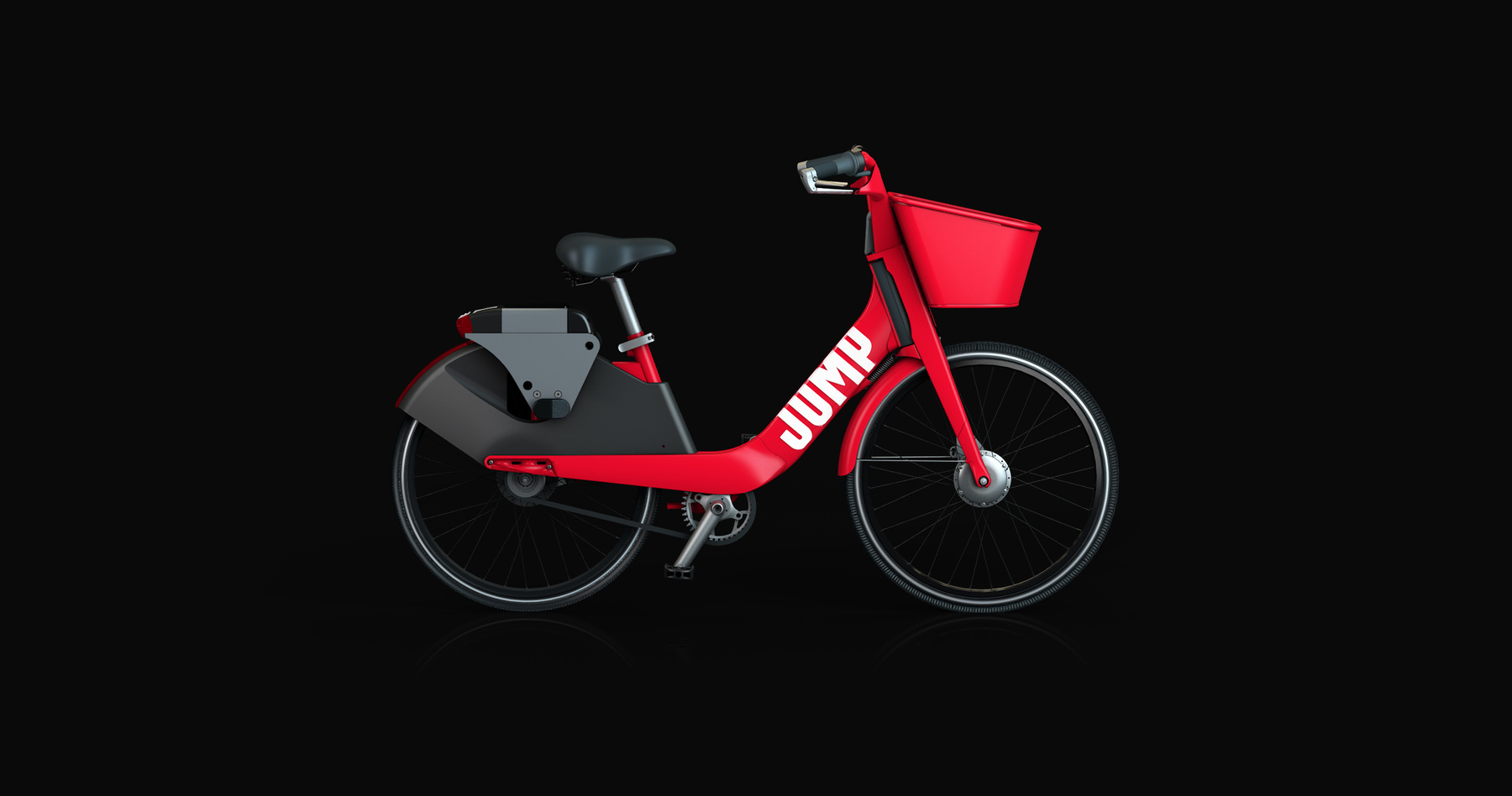Marketing is a battle for attention and engagement that ultimately benefits from diverse perspectives reflecting the real-world audiences brands seek to reach.
Neurodiversity isn’t a trend or a hiring tactic; it’s a necessary step toward true inclusion. This piece is about recognizing the value neurodivergent professionals bring to marketing teams and the workplace. While some debate whether neurodiversity should be framed as a “superpower” or simply a different way of thinking, the focus here is on highlighting often-overlooked strengths without tokenizing or romanticizing neurodivergence.
True inclusion means shifting from a deficit-based view to one that values diverse capabilities and removes systemic barriers.
Neurodivergence includes autism, ADHD, dyslexia, and more—differences that hiring often overlooks due to severely outdated or even prejudiced norms. But when businesses prioritize inclusion, they naturally create environments where neurodivergent professionals thrive, benefitting both the team and the business.
This isn’t about stereotypes—no single neurodivergent experience is the same. With the right support, neurodivergent employees bring fresh ways of thinking that can elevate marketing in powerful, meaningful ways.
Note: All images in this post are AI-generated and may contain artistic elements—such as visual representations of “superpowers”—for creative effect. These are intended to symbolize cognitive strengths, not to oversimplify or generalize the neurodivergent experience.

The Strength Neurodivergent Individuals Bring to Marketing
While every neurodivergent person is different, here are some strengths that, when nurtured in an inclusive work environment, can add value to a marketing team:
1. Deep Focus & Attention to Detail
Marketing often demands deep concentration, whether it’s crafting the perfect copy, analyzing performance metrics, or fine-tuning a campaign’s visual details. Some neurodivergent professionals, particularly those with ADHD or autism, may experience hyperfocus, allowing them to work with exceptional precision.
This can be a game-changer for roles that require meticulous execution, such as SEO optimization, A/B testing, conversion rate analysis, or quality control. Their ability to zero in on details that others might overlook can help prevent errors and ensure campaigns run smoothly.
However, it’s important to recognize that hyperfocus isn’t something that can be “turned on”—it thrives in an environment free of distractions, with clear expectations and task prioritization. By providing structured workflows and deadlines, businesses can harness this strength while supporting the way neurodivergent employees work.
2. Pattern Recognition & Analytical Thinking
Marketing isn’t just about creativity—it’s also about data-driven decision-making. Neurodivergent professionals, particularly those with autism, often excel in pattern recognition, logical reasoning, and analytical thinking.
Whether it’s identifying audience trends, predicting consumer behavior, or optimizing ad performance, these individuals can connect the dots that others might miss. They may naturally detect subtle shifts in engagement metrics, uncover unexpected correlations in customer data, or pinpoint inefficiencies in a campaign’s performance.
For marketing teams, this could mean sharper insights, stronger ROI, and a more strategic approach to content and advertising. Pairing neurodivergent analysts with creative teams (especially in the age of AI) can create a powerful left-brain/right-brain dynamic, ensuring that campaigns are highly optimized for performance.
3. Creative Problem-Solving
At its core, marketing is about solving problems—how to reach the right audience with the right message. Many neurodivergent thinkers, particularly those with ADHD and dyslexia, are wired for outside-the-box thinking.
They may approach challenges from unconventional angles, challenge industry norms, or generate ideas that push past traditional marketing strategies. Their ability to think divergently means they often excel in creative areas.
For companies looking to stand out in a saturated digital landscape, fostering an environment where creative risk-taking is encouraged can empower neurodivergent professionals to bring bold, breakthrough ideas to fruition.
4. Hyper-Specialization & Passion
Passion drives success, and many neurodivergent individuals develop deep, specialized knowledge in their areas of interest. This is especially true for autistic professionals, who may hyperfocus on specific subjects, becoming walking encyclopedias of expertise.
In marketing, this translates to team members who deeply understand their craft:
- Mastering PPC advertising and knowing every algorithm shift
- Becoming a leading expert in email marketing segmentation strategies
- Developing niche social media engagement tactics that others overlook
When businesses recognize and nurture these deep-dive interests, they can gain highly skilled, dedicated team members whose expertise elevates overall strategy.
The key is aligning job roles with these natural areas of specialization rather than forcing neurodivergents into positions that don’t play to their strengths.
5. Empathy & Consumer Insight
Marketing is all about understanding people—what they want, how they think, and what motivates them to take action. Neurodivergent professionals, particularly those with heightened emotional intelligence or strong observational skills, can offer unique insights that make campaigns more inclusive and impactful.
This is especially important in reaching neurodivergent consumers themselves, who make up 15-20% of the population. Many marketing teams still struggle with inclusivity—not just in representation but in marketing that resonates with neurodivergent audiences.
For example:
- Ensuring that color, contrast, and content structure meet accessibility needs.
- Avoiding overstimulation or miscommunication that could alienate neurodivergent viewers.
- Understanding how sensory processing differences, routines, or executive function challenges might impact consumer behavior.
By including neurodivergent voices in marketing discussions, companies can create content that feels genuinely welcoming—not just as a diversity checkbox but as a way to build real, lasting connections with a broader audience.

Neurodiversity in Action: Companies Leading the Way
It’s one thing to talk about the benefits of neurodiversity in the workplace, but it’s another to see those benefits in action. Many forward-thinking companies aren’t just embracing neurodiversity as an inclusion initiative, they’re actively harnessing the unique strengths of neurodivergent individuals to drive innovation and build stronger, more creative teams.
Here are three companies leading the way:
1. Microsoft's Autism Hiring Program
Microsoft has been at the forefront of neurodiversity hiring, particularly through its Autism Hiring Program, which actively recruits autistic individuals for roles in software development, data analysis, and quality assurance.
But their commitment goes beyond just hiring—they provide structured onboarding, mentorship, and career development, ensuring neurodivergent employees have the tools they need to thrive.
While the program is heavily tech-focused, its principles extend into marketing. Creative problem-solving, deep analytical thinking, and attention to detail—all of which are valuable in marketing strategy—are among the core strengths Microsoft seeks in its neurodivergent hires.
2. Ultranauts: Precision, Patterns, and Performance
Ultranauts is a company built entirely around the strengths of autistic professionals, employing them exclusively in software testing and quality assurance.
They recognize that pattern recognition, attention to detail, and structured thinking—areas where many autistic individuals excel—are critical to their business success.
While Ultranauts operates in the tech space, marketing teams can take a page from this playbook by structuring roles around individual talents—whether it’s a data-driven strategist who thrives on analytics or a content creator who sees storytelling from a fresh perspective.
3. Hewlett Packard Enterprise (HPE): Neurodiversity in Marketing & Communications
Hewlett Packard Enterprise (HPE) isn’t just hiring neurodivergent professionals in tech—it’s actively integrating them into marketing and communications roles. HPE recognizes that different perspectives drive more creative, effective messaging, which is crucial for connecting with diverse audiences.
Their neurodiversity hiring program highlights a key takeaway: Companies that embrace neurodiversity don’t just build better internal teams—they create marketing that resonates more authentically with the world.

How to Build a Marketing Team That Embraces Neurodiversity
Creating an inclusive workplace isn’t just about hiring neurodivergent employees, it’s about building a culture where they can truly thrive. Many neurodivergent professionals face barriers in traditional work environments, not because they lack skills but because workplace norms weren’t built with them in mind.
By making a few key shifts in how your team hires, communicates, and supports employees, you can create an environment that brings out the best in all team members—neurodivergent and neurotypical alike.
Here’s how to foster an inclusive, neurodivergent-friendly marketing team:
1. Rethink Hiring & Interviews
Traditional interviews often fail to measure true talent, especially for neurodivergent candidates. Factors like eye contact, small talk, and open-ended questions rarely reflect actual skills, yet they frequently influence hiring decisions.
A more effective approach focuses on skills and real-world performance rather than social expectations:
- Skills-based assessments showcase abilities through practical tasks.
- Project-based trials provide a way to gauge fit through paid work.
- Interviews with job-relevant questions keep the focus on qualifications.
Hiring neurodivergent professionals should be about what they can do—not how well they navigate an interview setting.
2. Flexibility: The Key to Retention & Performance
Rigid 9-to-5 schedules, open-office layouts, and constant Zoom calls can be exhausting for neurodivergent employees. A more flexible approach can boost productivity, engagement, and job satisfaction.
- Remote or hybrid work options for those who thrive in custom environments
- Adjustable schedules that allow for deep-focus work periods
- Workspace accommodations: Quiet areas, noise-canceling headphones, or soft lighting for sensory-sensitive employees
A little flexibility goes a long way in unlocking an employee’s full potential.
3. Communication Should Be Clear, Direct & Inclusive
Marketing teams thrive on collaboration, but unclear communication can create challenges for neurodivergent employees. Overly abstract requests, unnecessary jargon, or unwritten expectations can become unintentional barriers. Improving workplace communication helps everyone work more effectively:
- Avoid vague phrases like “ASAP” or “make this pop.”
- Combine written instructions with verbal check-ins for clarity.
- Offer concrete examples and clear expectations.
Good communication isn’t just a “nice-to-have”—it’s essential for creating a more inclusive and productive workplace.
4. Support & Mentorship: Setting Employees Up for Success
Neurodivergent employees can benefit from structured mentorship, especially when navigating workplace expectations, collaboration, and career growth.
- Assign mentors or peer buddies to provide guidance and advocacy
- Offer workplace accommodations upfront so employees don't have to ask
- Align employees’ talents with tasks they’ll excel at
A good support system helps turn potential into performance.
5. Foster an Inclusive Culture That Benefits Everyone
Inclusion goes beyond policies—it’s about fostering a workplace culture that values diverse thinking. Too often, neurodivergent employees feel pressured to mask their traits. Creating a more inclusive environment means:
- Educating teams on neurodiversity to break down misconceptions.
- Encouraging different working styles instead of a one-size-fits-all approach.
- Prioritizing accessibility in meetings, brainstorming sessions, and workflows.
The bottom line? A workplace that truly supports neurodivergent employees becomes a better workplace for everyone.

Expanding the Conversation Beyond Neurodiversity in Marketing
The conversation around inclusive marketing doesn’t end with neurodiversity—it’s part of a larger movement toward equitable, accessible, and diverse workplaces. The best marketing teams reflect the audiences they serve, ensuring that every campaign is built with authenticity, cultural awareness, and accessibility in mind.
A marketing team that embraces diversity in thought and experience will naturally create more impactful and inclusive campaigns. Here’s what businesses should focus on beyond neurodiversity to foster stronger, more innovative teams.
1. Diverse Marketing Teams: Different Voices, Bigger Impact
Marketing that resonates starts with teams that reflect the real world. When marketing teams include people from different backgrounds, experiences, and perspectives, they create more compelling, culturally relevant messaging.
- Authenticity: Diverse teams create content that feels relatable to a broader audience.
- Cultural fluency: Different perspectives help avoid tone-deaf messaging.
- Stronger brand loyalty: Consumers engage more with brands that reflect their identities.
Marketing that lacks diversity can feel out of touch or exclusionary. A truly diverse team fosters trust, innovation, and deeper consumer connections.
2. Accessibility in Marketing: If It’s Not Accessible, It’s Not Inclusive
Inclusion isn’t just about who’s on the team—it’s also about who can engage with the content being created. If your marketing isn’t accessible, you’re shutting out millions of potential consumers.
- Follow WCAG guidelines: Ensure content is readable and navigable for people with disabilities.
- Include captions & alt text: Make videos, images, and audio accessible to all users.
- Design for readability: Use high-contrast colors, clear fonts, and structured layouts for better comprehension.
By prioritizing accessibility, companies not only expand their reach but also demonstrate a real commitment to inclusion, building trust and brand loyalty.
3. Neurodiversity Awareness & Training: Education Is Understanding
Hiring neurodivergent professionals isn’t enough; companies need to create a work culture that actively supports them. Many neurodivergent employees leave their roles not because of ability but because of a lack of workplace accommodations.
- Train leadership & teams: Educate employees on inclusivity and support.
- Encourage structured feedback: Clear and direct communication helps neurodivergent employees to thrive.
- Normalize flexible work: Remote options, sensory-friendly workspaces, and flexible schedules support all employees.
When companies invest in education and workplace adjustments, they build a culture where neurodivergent professionals feel valued, leading to better retention and innovation.
Summary: Inclusive Marketing Is a Competitive Advantage
Building an inclusive marketing team isn’t about meeting quotas, it’s about creating an environment where diverse perspectives drive creativity, engagement, and impact. True inclusion means prioritizing representation, accessibility, and workplace education while fostering flexibility that benefits all employees.
If you need help creating and executing an action plan on diversity and inclusion in the workplace, I can help. Let’s talk.














Discussion